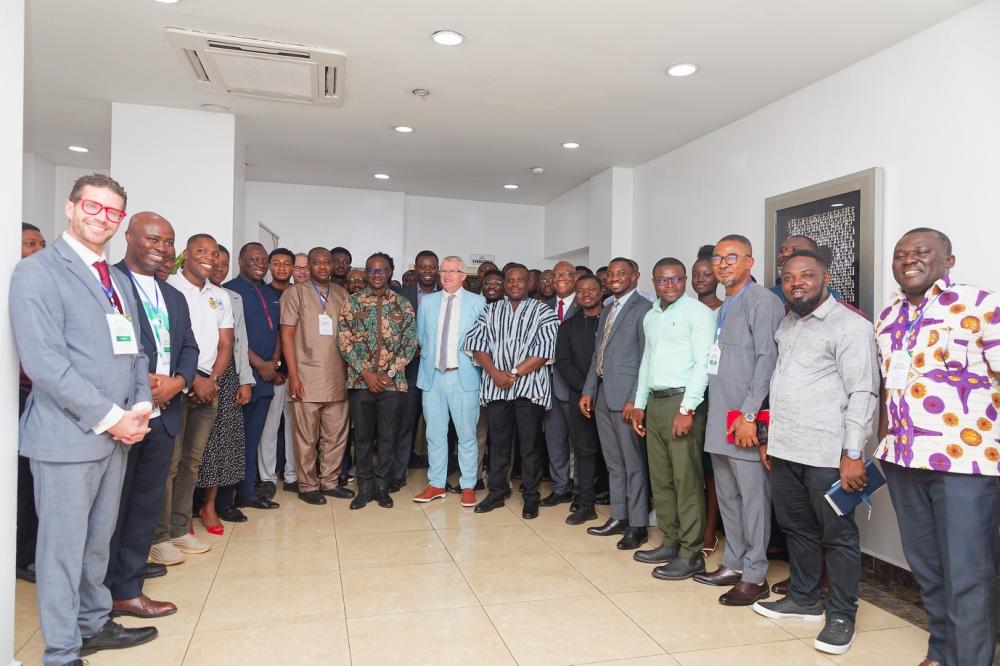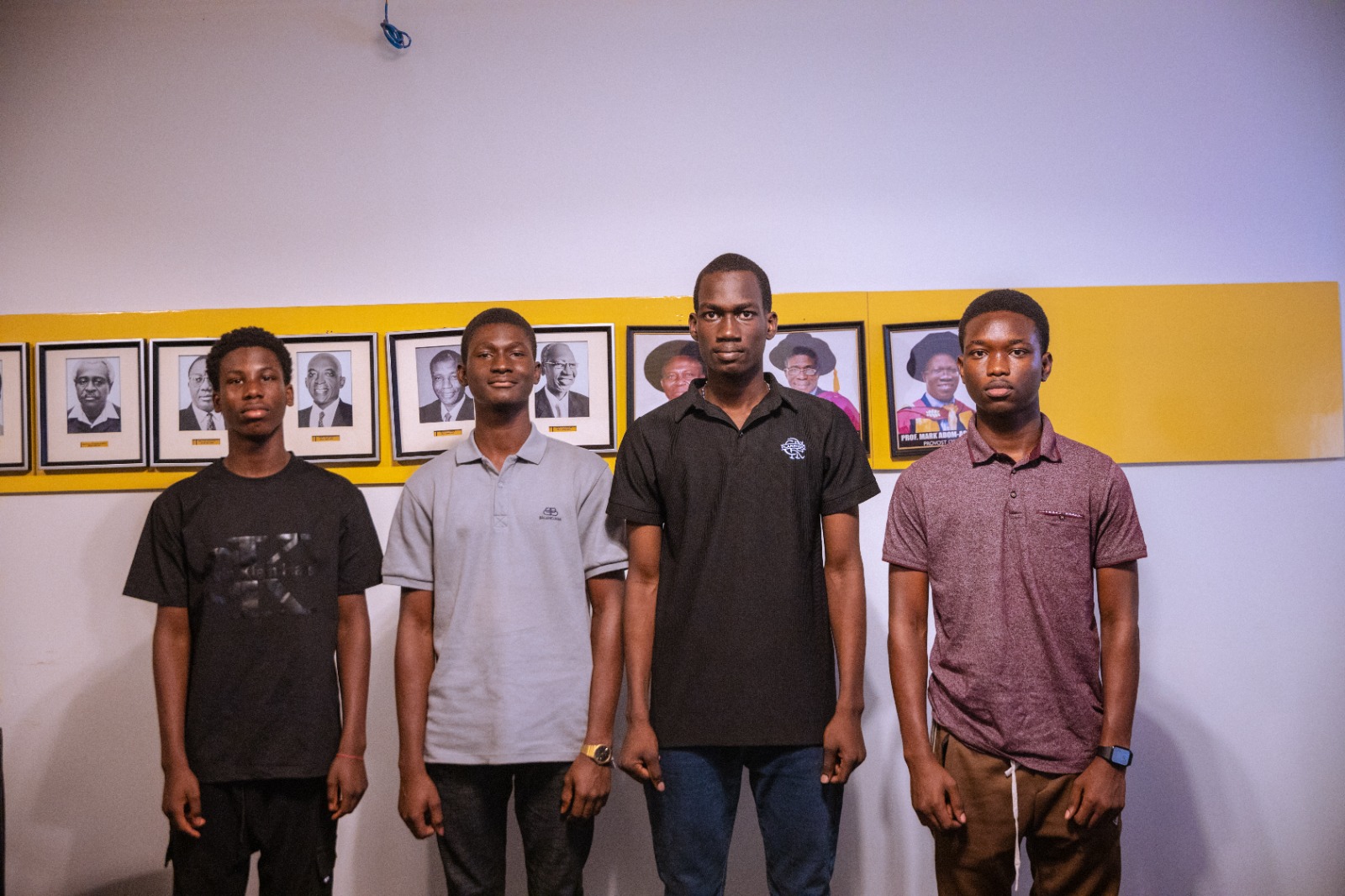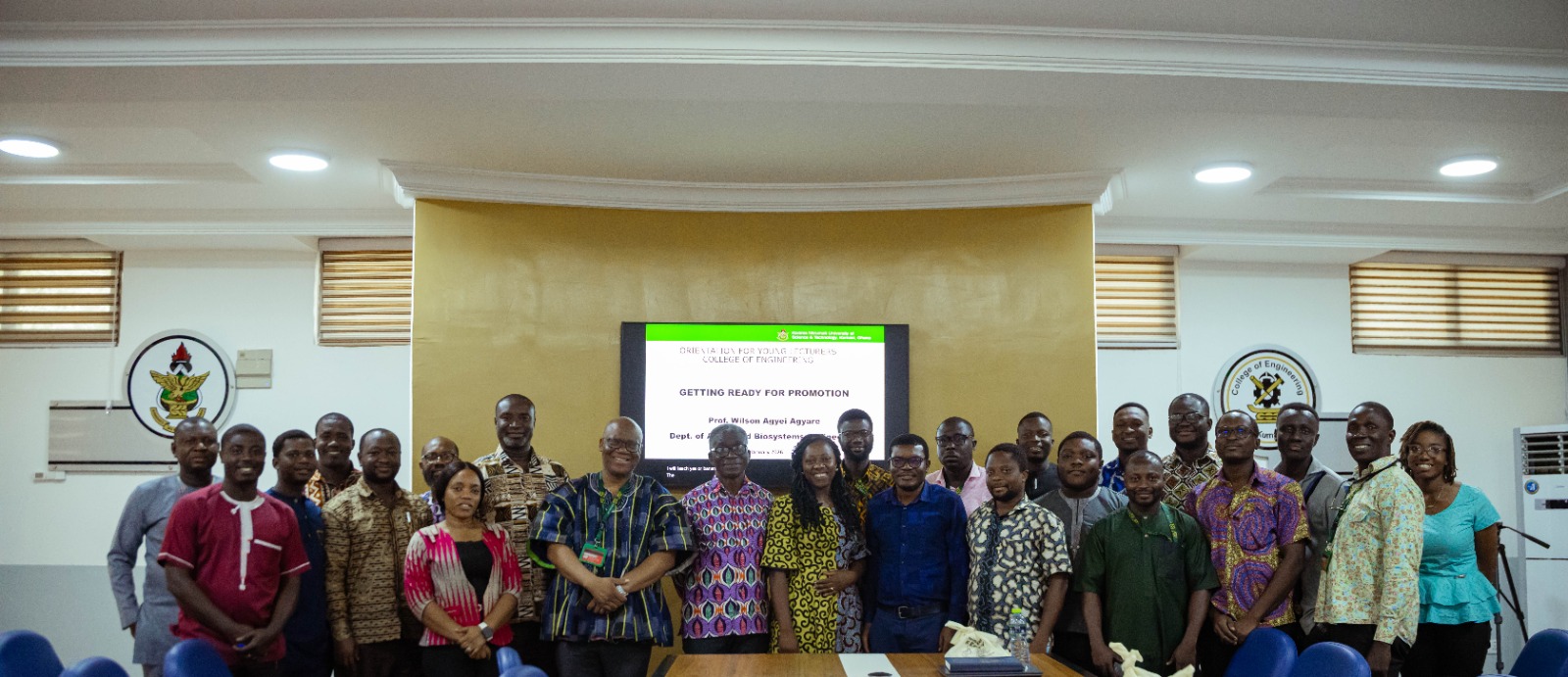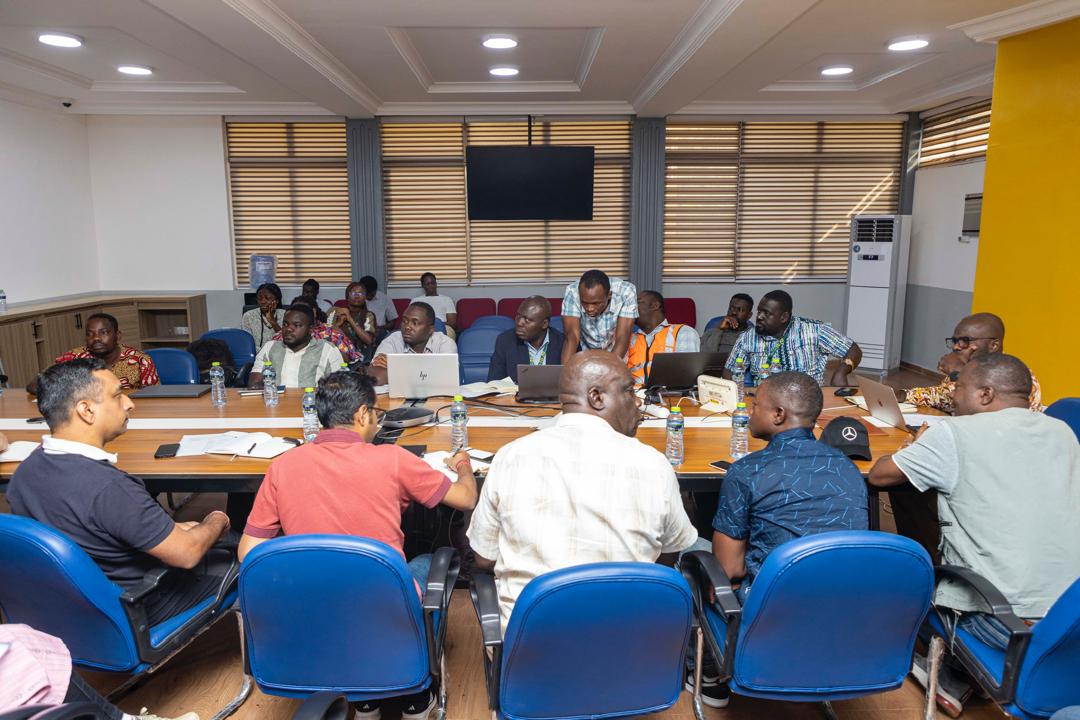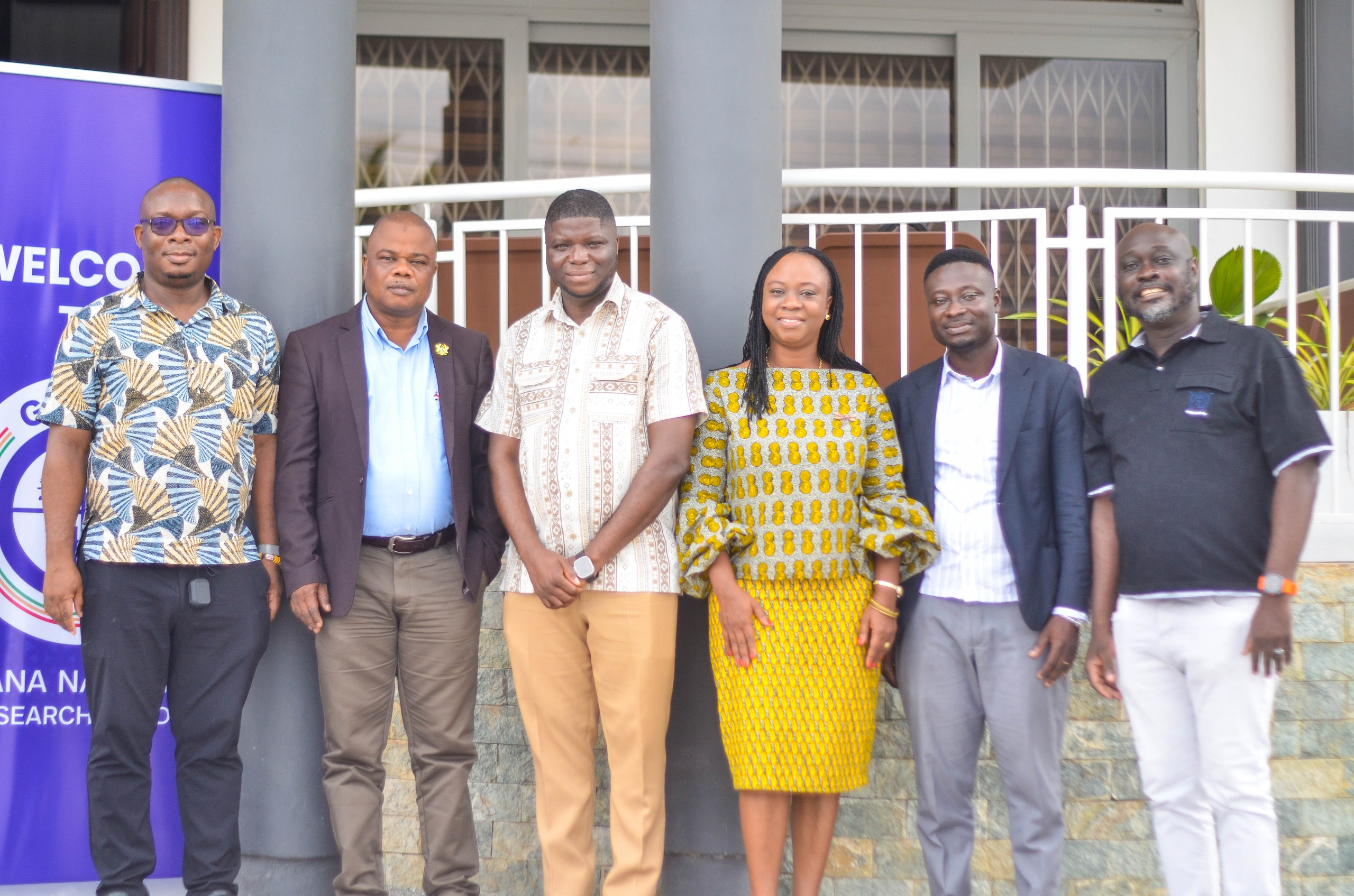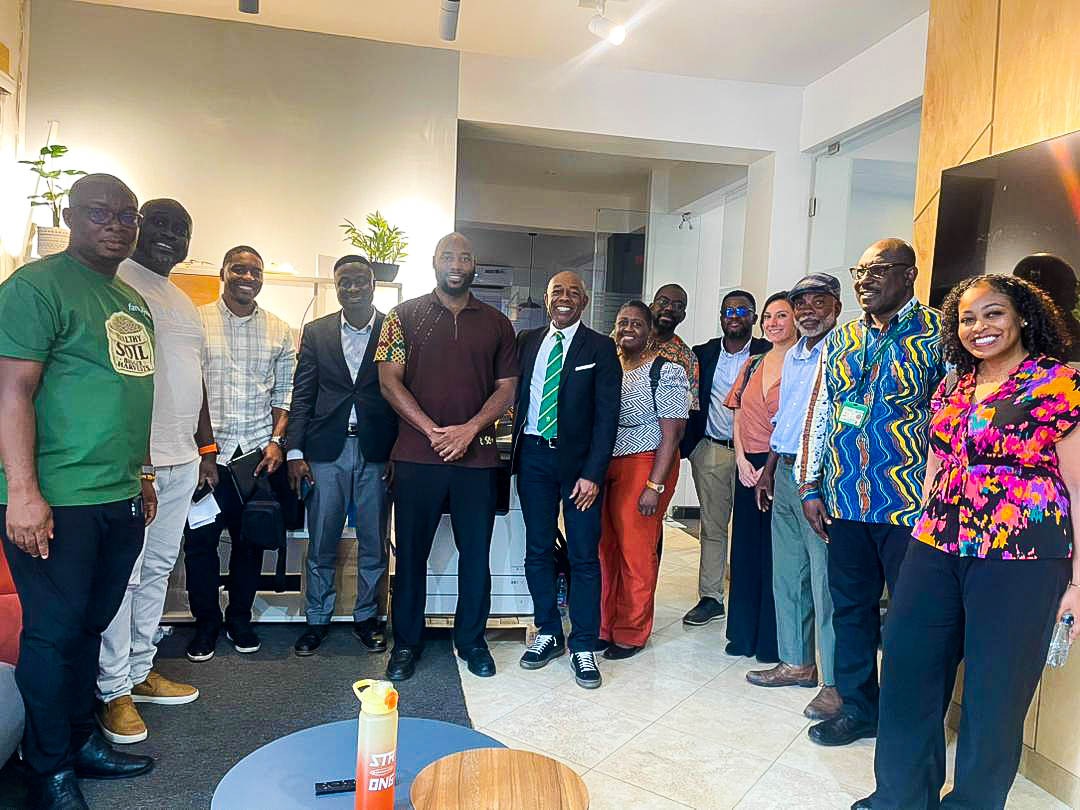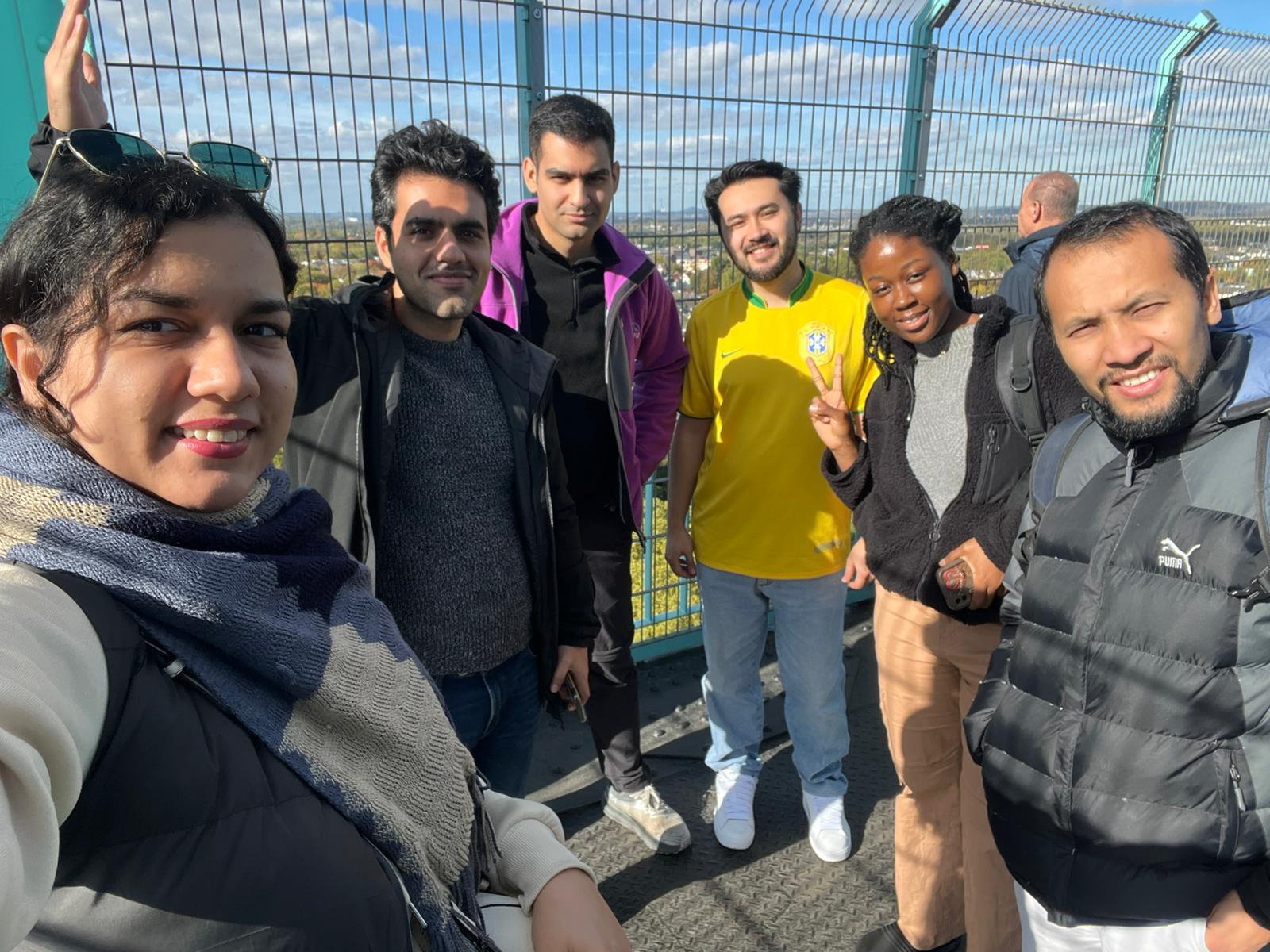The Ministry of Communication, Digital Technology and Innovations, in collaboration with the British High Commission Accra and development partners, hosted a National AI Strategy Consultation at the AH Hotel in East Legon. The consultation gathered government officials, academia, industry leaders, civil society, and tech innovators to shape an inclusive and responsible AI ecosystem for Ghana’s development.
The Kwame Nkrumah University of Science and Technology (KNUST), through the Responsible AI Lab (RAIL), is coordinating all the processes leading to the
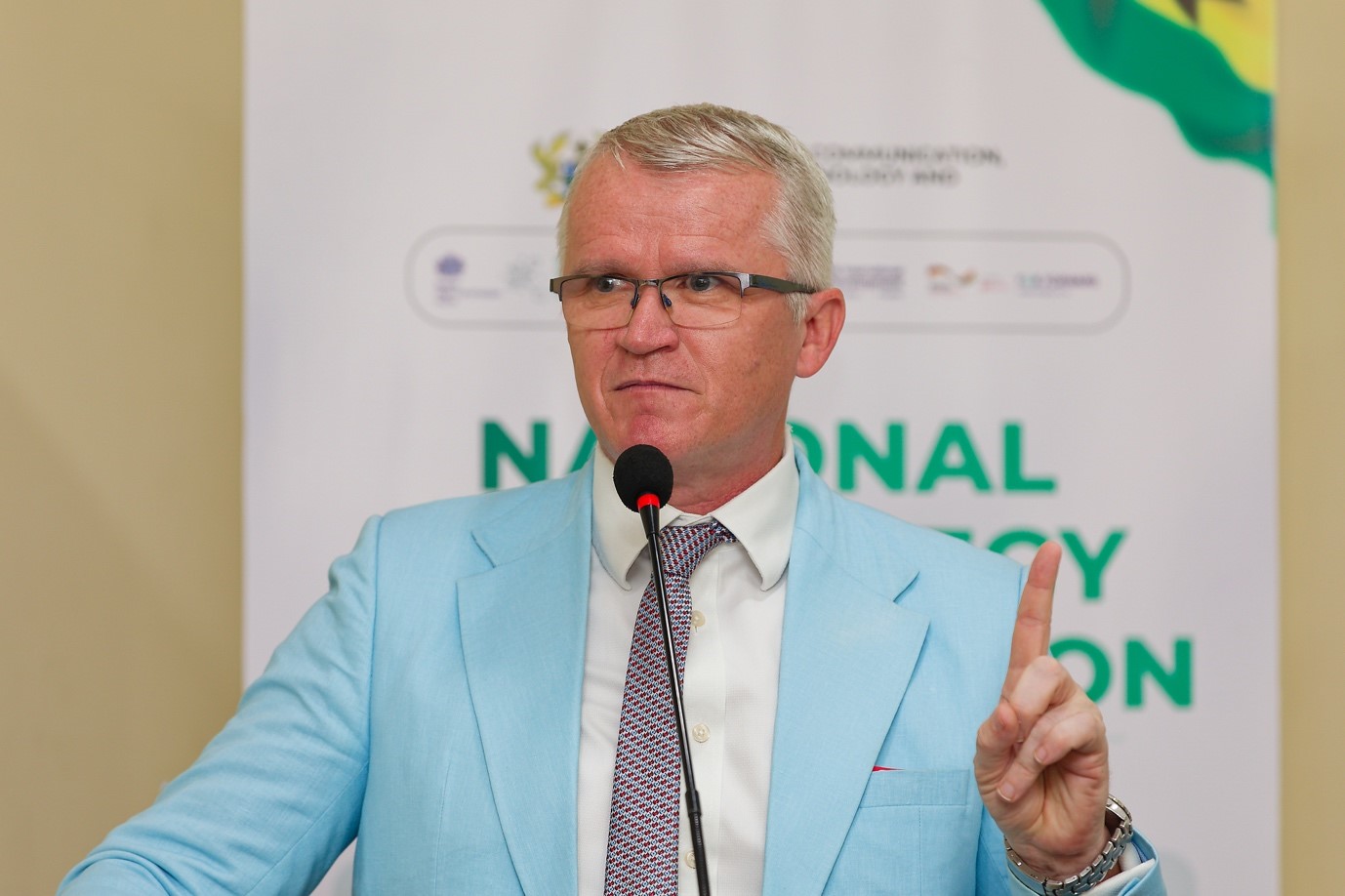
Keith McMahon, Deputy High Commissioner of the British High Commission in Ghana, mentioned the urgency of embracing AI. “Globally, we are behind in AI adoption, but today’s discussions give me hope that Ghana recognises its transformative potential,” he said. He highlighted the UK’s support for Ghana’s AI strategy, which focuses on research, skills development, and technology transfer.
“AI must be open, responsible, and secure to bridge gender gaps and drive inclusive growth,” he added.
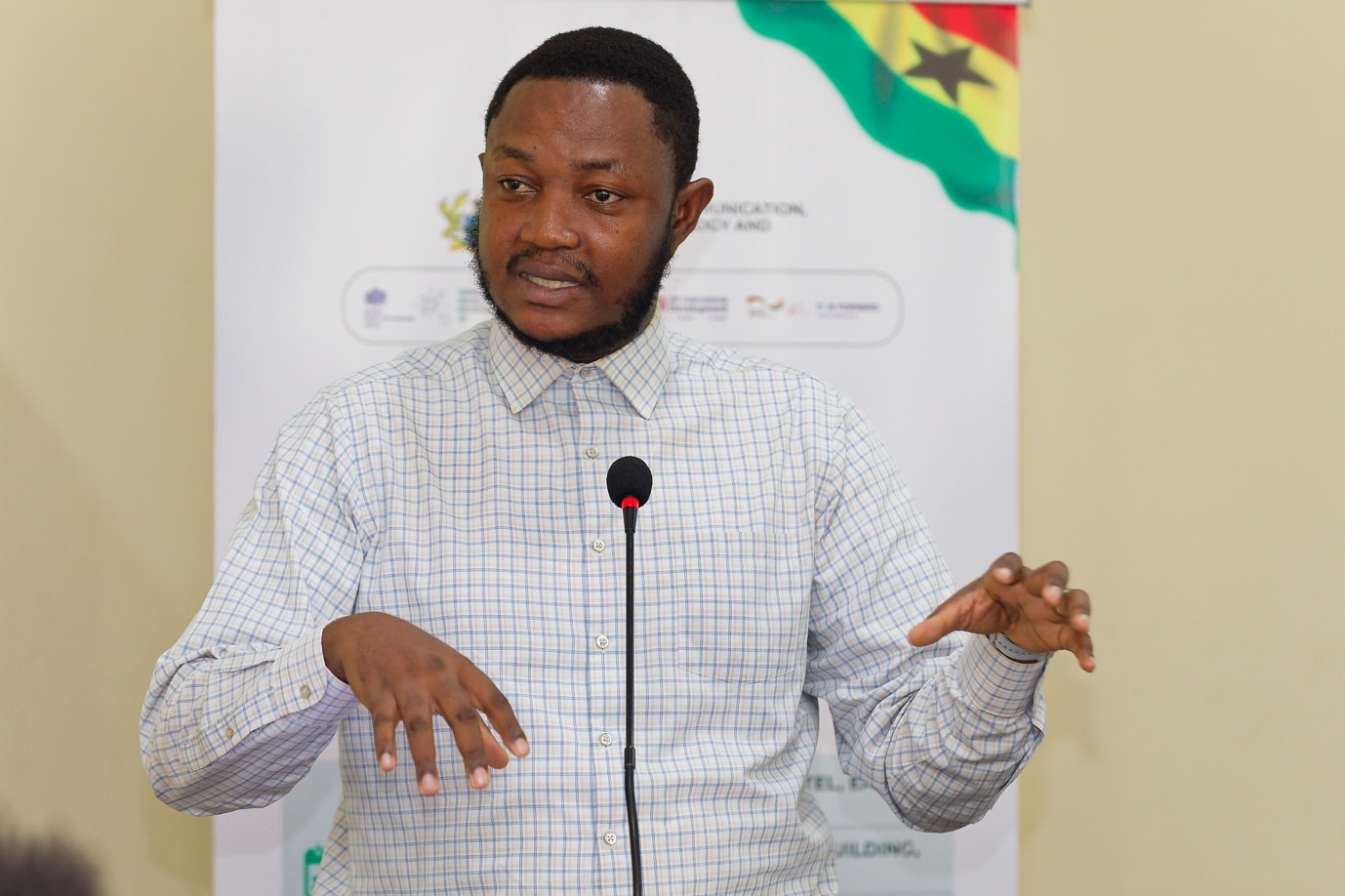
Mr. Elikplim Sabblah, Technical Advisor for GIZ’s FAIR Forward initiative, shared insights on democratising AI across Africa and Asia. He said GIZ supports women and SMEs with digital tools through the Data Transformation Centre. He noted that Ghana’s AI strategy, initially drafted in 2020, requires urgent updates due to rapid advancements in the field.
“The fast-evolving AI landscape demands a refreshed approach,” he stressed.
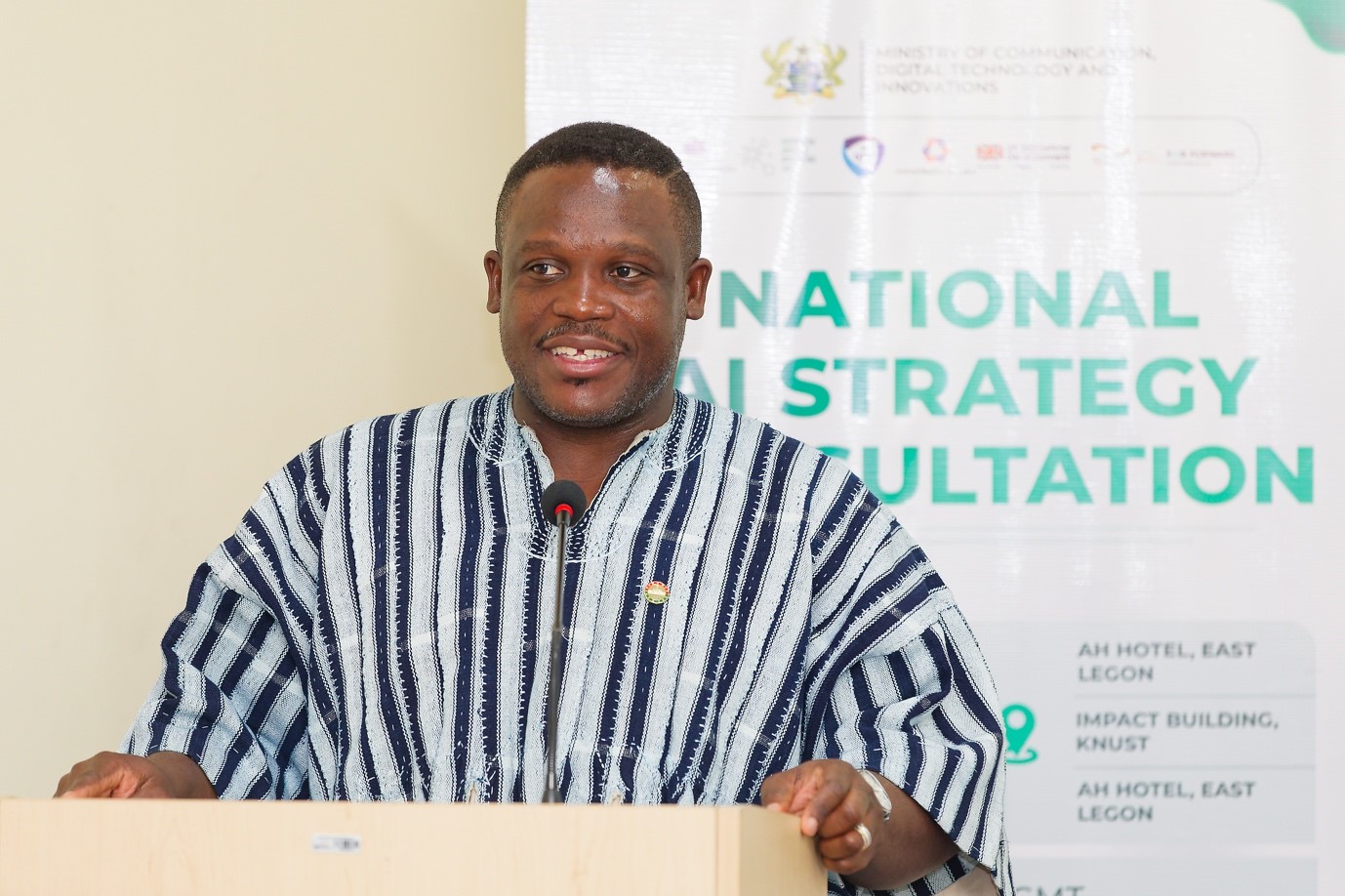
Hon. Samuel Nartey George, Ghana’s Minister of Communication, Digital Technology and Innovations, declared AI a national priority. “Data alone isn’t enough—it’s the intelligence we apply that will revolutionise healthcare, smart cities, and financial inclusion,” he said. The Minister announced the 1 Million Coders Program, a bold initiative to equip Ghanaian youth with future-ready digital skills. He reiterated the government’s commitment to infrastructure investment, strategic partnerships, and policies that foster innovation.
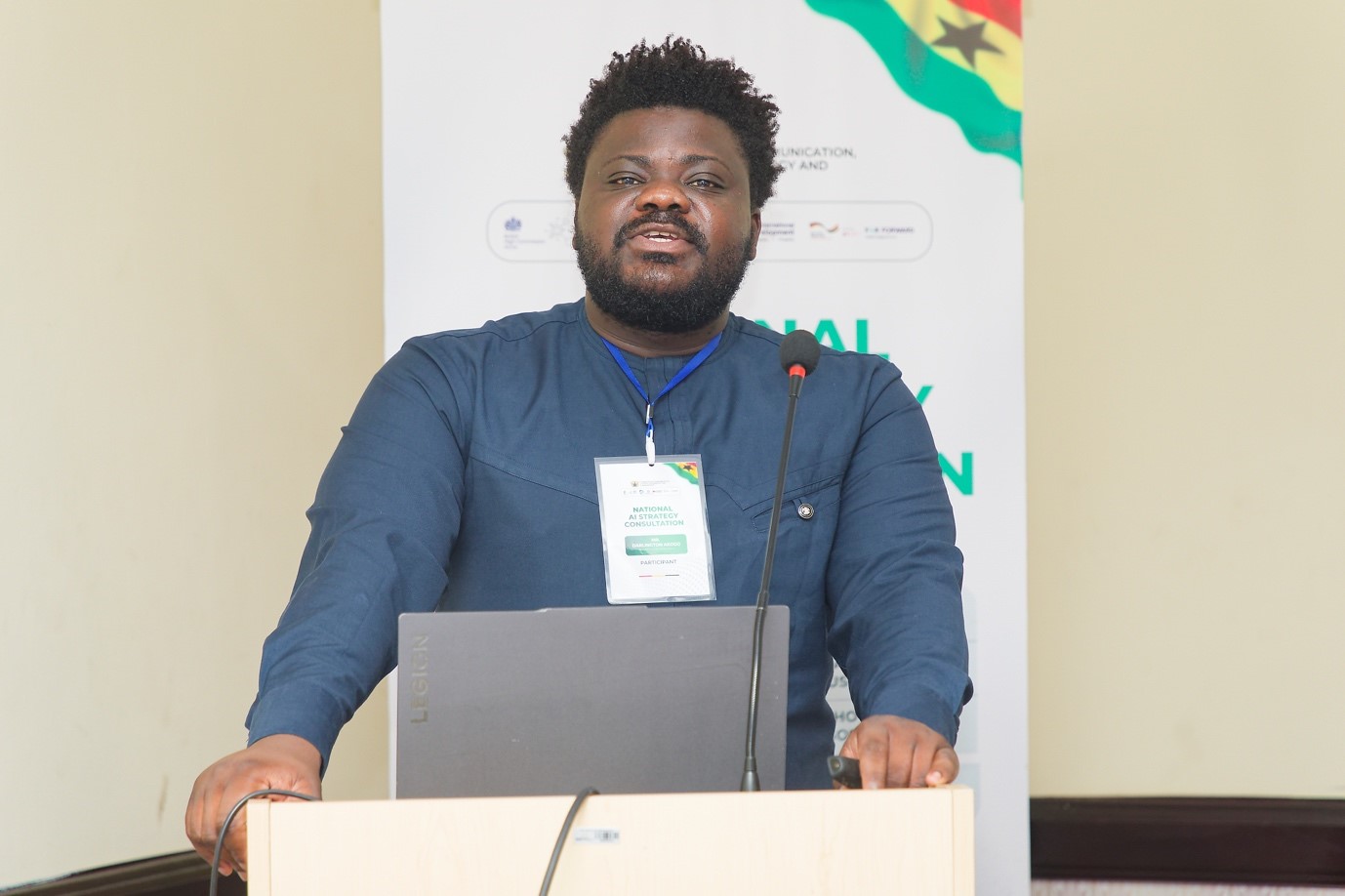
Mr. Darlington Akogo, CEO of MinoHealth AI Labs, made a compelling case for AI’s economic potential, estimating a $20 billion boost to Ghana’s GDP. “AI offers higher returns than traditional assets like cocoa and oil—and it will enhance these very sectors,” he argued. Akogo called for an AI National Fund and urgent prioritisation of AI development.
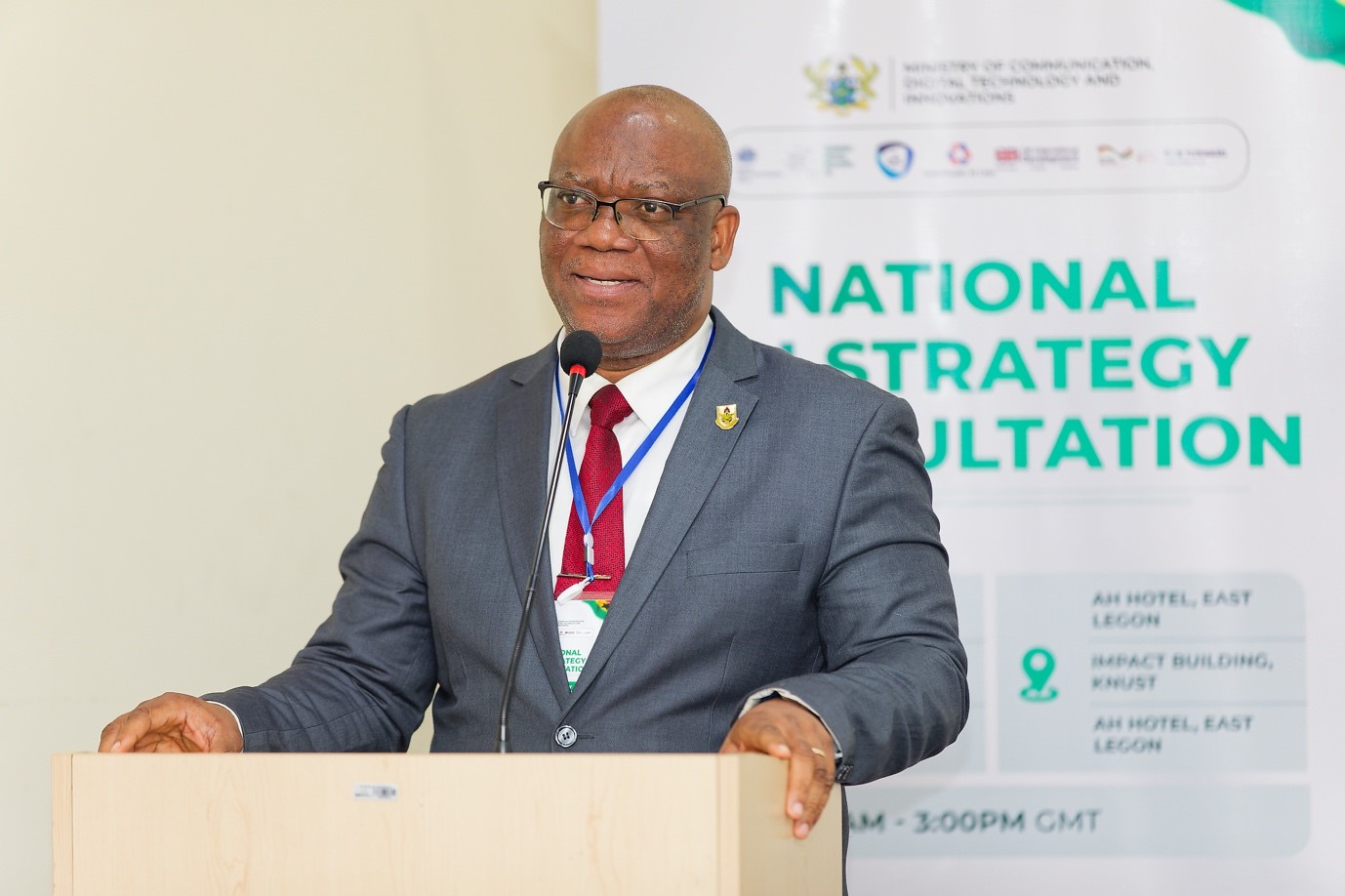
Prof. Jerry John Kponyo, Principal Investigator and Scientific Director of the Responsible AI Lab (RAIL), presented the draft strategy, outlining its mission, risks, and eight key pillars. He commended the Minister for his commitment to getting the strategy passed this year. He indicated that RAIL considers its mandate a sacred duty and will work with all the key partners to ensure the strategy is passed by June 2025.
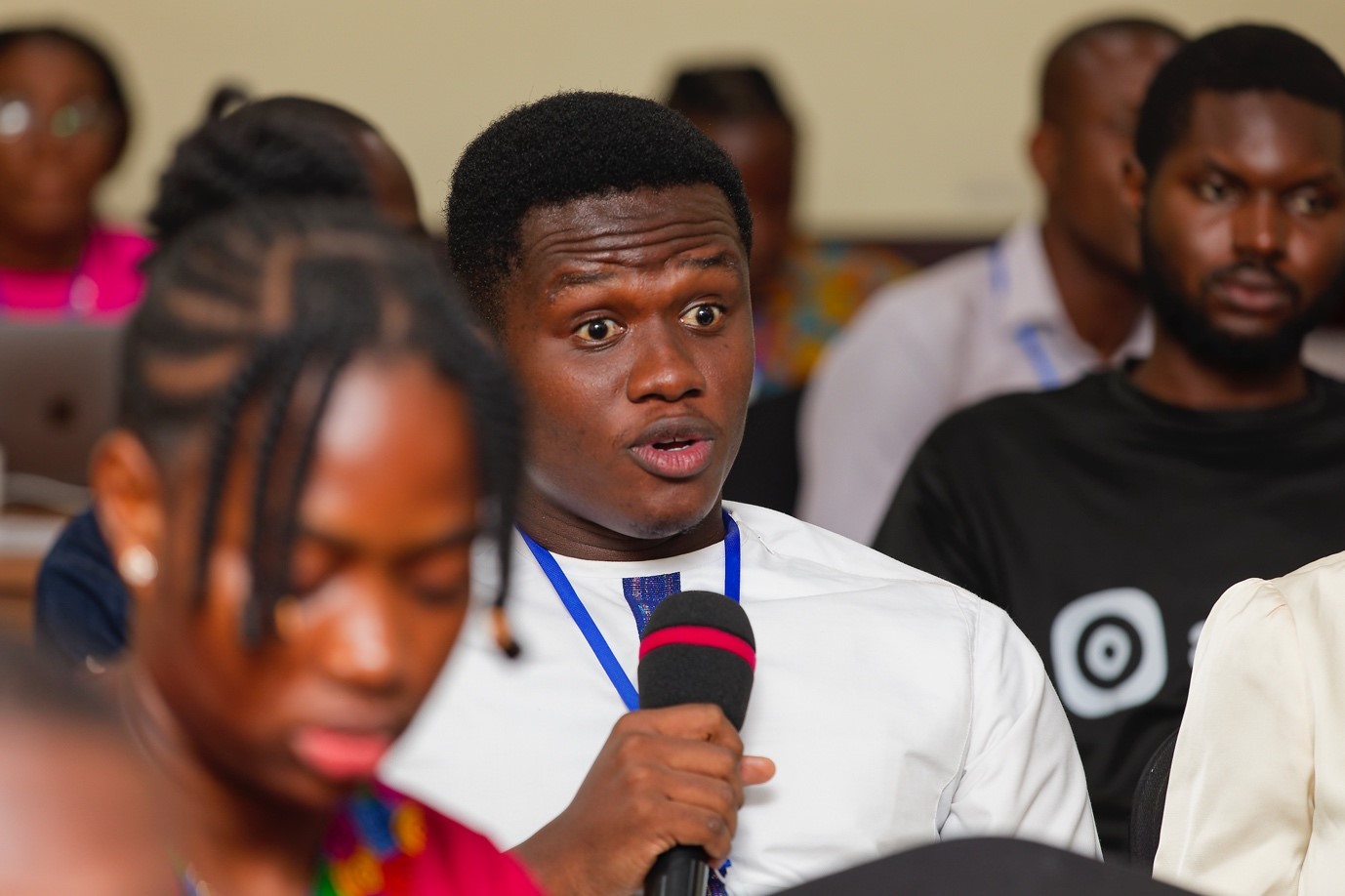
Mr. Jeremiah Ayensu, Senior AI Engineer at MinoHealth AI Labs, contributed to the conversation.
Participants emphasised tailoring AI solutions to local needs, upskilling teachers, and revising school curricula. The implementation timeline targets June 2025 for the strategy’s rollout, with academic institutions, SMEs, and corporations playing critical roles.
Key recommendations included:
- Establishing an AI Fund and Responsible AI Office
- Integrating AI into education and media capacity-building
- Developing tech hubs nationwide
- Ensuring inclusivity for informal sector workers and public servants
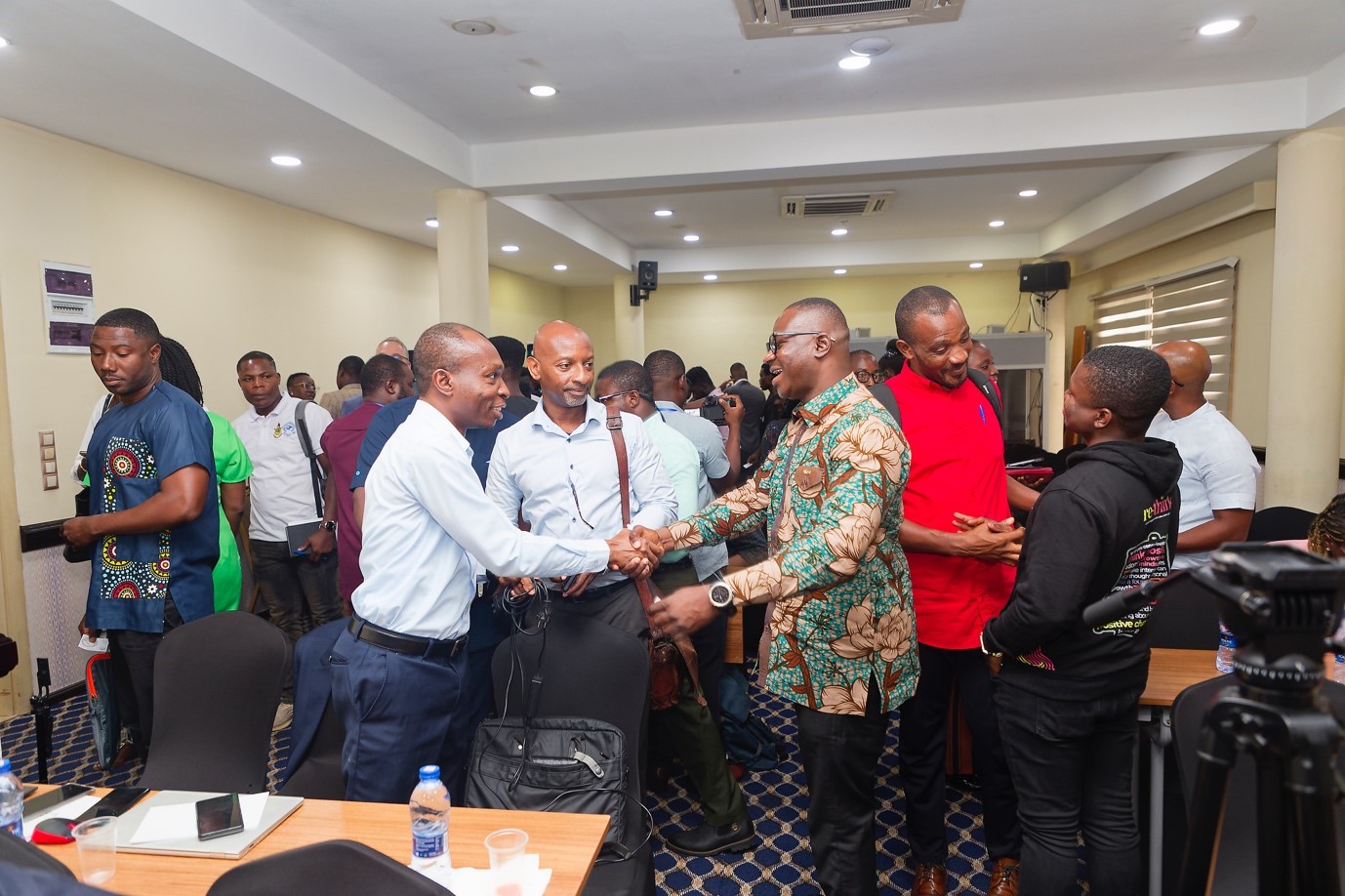
The consultation concluded with calls for further feedback to ensure Ghana’s AI strategy is representative and transformative. With the collaborative effort, Ghana aims to position itself as Africa’s leading AI hub, balancing innovation with ethical responsibility.


